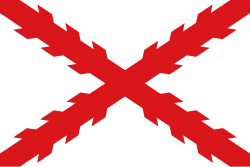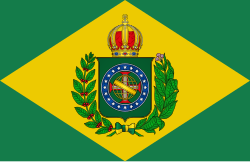Místokrálovství Río de la Plata
| Místokrálovství Río de la Plata Virreinato del Río de la Plata
| |||||||||||
geografie
| |||||||||||
| obyvatelstvo | |||||||||||
| státní útvar | |||||||||||
měna: | peso | ||||||||||
| státní útvary a území | |||||||||||
| |||||||||||
Místokrálovství Río de la Plata (španělsky Virreinato del Río de la Plata) byla španělská kolonie, která byla vyčleněna v roce 1776 z Místokrálovství Peru na ochranu svých jižních provincií před britským a portugalským vlivem. Rozkládalo se na území dnešních států Argentina, Paraguay, Uruguay a Bolívie. Svůj název dostalo podle zálivu-estuáru Río de la Plata, přes který probíhal téměř veškerý námořní styk se zbytkem světa.
25. května 1810 vyhlásila nezávislost Argentina a 15. května 1811 Paraguay podnikla stejný krok, což značilo faktický konec existence místokrálovství.
Seznam místokrálů
- Pedro Antonio de Cevallos (1776–1778)
- Juan José de Vértiz y Salcedo (1778–1784)
- Cristóbal del Campo (1784–1789)
- Nicolás Antonio de Arredondo (1789–1795)
- Pedro Melo de Portugal y Villena (1795–1798)
- Antonio Olaguer Feliú y Heredia (1798–1799)
- Gabriel de Avilés y del Fierro (1799–1801)
- Joaquín del Pino y Rozas (1801–1804)
- José Fernando Abascal y Sousa (1804)
- Rafael de Sobremonte (1804–1807)
- Santiago de Liniers (1807–1809)
- Baltasar Hidalgo de Cisneros (1809–1810)
- Francisco Javier de Elío (1810–1811)
Externí odkazy
 Obrázky, zvuky či videa k tématu Místokrálovství Río de la Plata na Wikimedia Commons
Obrázky, zvuky či videa k tématu Místokrálovství Río de la Plata na Wikimedia Commons
Média použitá na této stránce
Autor: Ningyou., Licence: CC BY-SA 3.0
Flag with the cross of Burgundy (saltire). Also named Cross of Burgundy flag. It was used in the Catholic Monarchy and in its viceroyalties such as New Spain and Peru. It was also used by Spain as a military or king's prosonal flag. Used by the Carlist movement.
Autor: Baselle, Licence: CC BY-SA 4.0
Autor: Adapted from Huhsunqu, made by Pachakutec, Licence: CC BY-SA 2.5
Suntur Paucar, according to the description of the chronicles of Bernabé Cobo
Flag of Mexico (1864-1867)
Autor: Huhsunqu, Licence: CC BY-SA 2.5
Flag of the Bolivian Republic between 1825 and 1826.
National flag of Argentina released in 1818. This version added the sun to the flag previously created by Manuel Belgrano.
The colors would be later specified in Decree Nº 10.302/944
Flag of the Second Empire of Brazil, with 20 stars, representing the new provincies of Rio Negro (1850, later Amazonas) and Paraná (1853), furthermore the loss of the province of Cisplatina (1828).
Reformed standard according to this book, an official publication of the government of Brazil, on page 74.Flag of the First Mexican Empire. The flag have the Colors of the Three Imperial Guarantees: Independence, Religion and Union. In the center is the National Arms, conformed by the Crowned Mexican Eagle, this time without the Snake.
Autor: previous version User:Ignaciogavira ; current version HansenBCN, designs from SanchoPanzaXXI, Licence: CC BY-SA 3.0
Flag of Spain (1785-1873 and 1875-1931)
Flag of the Princes of Brazil (1645-1815), the obsoleted title used to indicate the presumptive heirs of the Portuguese throne.
Hypothetical flag of the Kingdom of Brazil (1816-1822).
Autor: FDRMRZUSA; See sourced files for original author(s), Licence: CC BY-SA 4.0
Glyphs for the member States of the Aztec Triple Alliance.
Autor: Keepscases, Licence: CC BY 3.0
Location of the Viceroyalty of the Río de la Plata in orthographic projection, approx. 1796.
Autor: Juan de Garay
(Vector graphics by Heralder & Sodacan), Licence: CC BY 4.0
Coat of arms shown at the Flag of the City of Buenos Aires, Argentina. It was the colonial arms adopted by Juan de Garay (Spanish Empire)



















